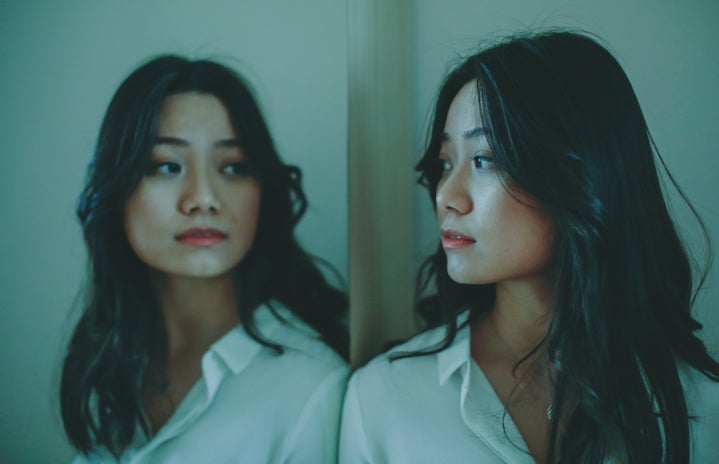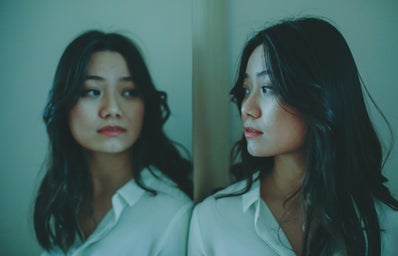When I first heard of Emily Ratajkowski’s name in 2013, the only thing I knew was that she was in Robin Thicke’s controversial song and music video for “Blurred Lines”. You know the creepy video with Thicke, Pharrell and T.I where they’re dancing with women almost half-naked which became one of the most viewed music videos on Youtube? Yeah, that one. I didn’t care much as a 12 year old watching that to look beyond what Emily was behind that persona, just thought she was another pretty girl who happened to be a model. But I guess that’s the thing: no one really seeks to look beyond a stunning, almost flawless person, especially a supermodel.
I have always wondered what it was like to be in the position of a model, where you use and are known for your body to promote work. I had always taken notice of the fact that most people don’t know models for who they are behind their public images, we just see photos of them and keep it going, but obviously there is more to surface of their looks. I just wonder why people never sought to seek that information out.
But Emily proves that there is more than what meets the eye with this supermodel turned newfound author. She released My Body in 2021 after getting married and becoming a mother. The book is a collection of personal essays which talk about the scope of beauty and the toxic male patriarchy that upholds it. When reading this, I found myself happy, upset, annoyed, frustrated, at her musings of her life experiences and thoughts. She starts the book with a quote from Art Critic John Berger’s series, which states,
“You painted a naked woman because you enjoyed looking at her, you put a mirror in her hand and called the painting Vanity, thus morally condemning the woman whose nakedness you had depicted for your own pleasure”.
The book then goes in the first chapter, “Beauty Lessons” where she explains how her relationship with beauty first started, through her mother’s ideals. Ideals that feel toxic in a sense, once you hear the origins of Emily’s mother’s thinking which came from her stern immigrant father. Emily’s mother ingrains in her the significance of being beautiful, even with all of its victories and tragedies that come along with it. Ratajowksi describes growing up never going to church, but praying for beauty, revealing in a heartbreaking sentence in which she states,
“Beauty was a way for me to be special. When I felt special, I felt my parents’ love for me the most”.
There were many times in this book that felt too relatable, I feel like any young woman can relate to such a feeling of validation for one’s own beauty. In a world where our worth is placed on our physical attractiveness from a young age, pressured from not only media but family and friends as well, how could some of us not crave beauty to feel special? Ratajkowski does not answer the question of whether being beautiful can help you feel special, but rather the disadvantages that come with being seen as such.
As the essays go on, Ratajkowski is not shy when she opens up about how her worth was always placed on her physical looks, from her always being in relationships to being scouted to modeling agencies in her adolescence. Her thoughts almost feel too raw, too exposed. As a woman you cannot help but to feel for the reflective, at times depressing inner monologue about beauty and self worth that Ratajkowski goes through. She opens up about doing modeling and feeling like she was merely just a body, doing a job and getting a check. But feeling empowered when doing so, mainly because she was comfortably making enough money to not rely on anyone. When it progresses into instances where people, particularly men, abuse that power, Emily details the helplessness that comes with those difficult situations. When she states that,“I have learned my image, my reflection, is not my own”, my heart broke a bit.I realized she metaphorically is the naked woman Berger was talking about before the book even began. Men who use women for their own pleasure, are essentially taking away a woman’s right to feel empowered within her own body all for their own selfish desires.Throughout her pondering, Ratajkowski acknowledges how much she contributes to the broken system where mens’ greed for power exploits women and their power. She owns the fact she perpetually creates an image within herself that is a reflection of what the male gaze wants, but that she feels powerful within doing so.
But I did wonder if that feeling ever fulfilled any self-contentment. After all, she has almost 30 million followers on Instagram and counting, she’s beautiful, has received great modeling deals and is surrounded by powerful people all the time most likely, is she content? The book doesn’t make it seem so. She is quoted saying, “My position brought me in a close proximity with wealth and power and has brought me some autonomy, but it hasn’t resulted in true empowerment”. Although she expresses no regret for what she did to be successful, there is an underlying feeling of rage of participating in a system that reduces womens’ power to exploit them. In “Buying Myself Back”, the strongest essay out of the collection, she mentions an instance of where a photographer who s*xually assaulted her while on a job, who then turned around to profit off her photos without her consent, Emily is angry. As she should be, but there is also a strong feeling of disdain over the fact she cannot control how her images were handled even when she consensually allowed her photos to be taken in those moments. It’s an inner turmoil I think most women go though, for example Instagram. We want to be able to take photos ourselves having fun, being hot and sexy and free, but when men come into our DM’s and take our photos as invites to be treated as a sexual object, we are angry. Angry over the fact that we cannot feel empowered, we cannot feel like our true selves, all because men take it as prepositions to fulfill their own needs and desires.
Because of these experiences, Ratajowski describes her own complicated image of herself in a way that is so engaging and relatable you almost feel like she is the comforting older sister that reassures you that it is okay to not have everything figured out. She details her relationship with Instagram and how she posts photos “that I think of testaments to my beauty and then obsessively check the likes to see if the internet agrees”. And I mean…. Haven’t we all been there?
Overall, I would say My Body is a thought-provoking, introspective, stellar piece of work. Ratajkowski touches on points that have gotten her where she is today, while also being able to acknowledge that she is apart of a system that harms more than benefits women altogether. Ratajkowski’s thoughts are also concise and articulate, I never would have thought that the position of a model would include feelings of power and powerlessness, but Emily encompasses those two feelings all too well within her writings, and it is profound. Throughout these essays, there is a feeling of no set answer to what we can do to solve this problem within the broken system or even how to reduce it, but rather that it is okay to at least acknowledge that is very much exists, and that we all play a part within it. From being acquaintances with guys who contribute to slut-shaming women to women tearing each other down in the name of beauty, we uphold the system Emily calls out. My favorite chapter is the last one, where she describes going on an intense bike ride with her best friend and then-husband after finding out she is pregnant. She is exhausted and trailing behind them, worried about what she might look like all sweaty and exasperated, but soon gets a burst of determination to catch up to them. She starts to not care about what she looks like in that moment, remembering her pregnancy and catches up as they look at her lovingly, she states,
“My eyes welled with tears. I wanted to cry out: Thank you! What a joy life can be in this body!”.


